Christianity’s enemies, left and right, are destroying the West
With the return of nationalism, power, tribalism, anger; and the collapse of consensus, Christianity is being replaced by the strong gods of an old paganism.

– Scott Morrison’s valedictory speech to parliament
Former prime minister Scott Morrison delivered a tough warning and sketched a dangerous future in his final address to parliament.
Though his speech radiated goodwill and graciousness, there were yet tones of an Old Testament prophet. Rarely can any parliamentary speech have contained so many scripture passages, including a blessing: “May our Lord Jesus Christ himself and God and our father … comfort and strengthen your hearts in every good work and deed.”
Morrison’s message was as old as Moses. The nation is worshipping false idols, and these idols can lead to destruction. When God is banished from public view and religion chased from the public square, the result is not harmony and good order but the opposite.
Morrison cited Rabbi Jonathan Sacks: “The great tragedies of the 20th century came when politics was turned into a religion and when the nation, in the case of fascism, or the system, in communism, was made absolute and turned into a god.”
We witness now the return of the strong gods of old, nationalism, power, tribalism, anger; and the collapse of consensus. Can society function without any consensus at its base? The evidence for Morrison’s diagnosis is the sheer dysfunction in Western liberal democracies and the roiling fragility of the international order, perhaps more fragile than any time since the 1930s.
Let’s step back for a wider lens on Christianity and politics throughout the West.
Dave Sharma, after the last election, reported Wentworth voters registering hostility to Morrison as “too religious”.
Yet it’s impossible to identify a single law, or executive action, Morrison took as prime minister that he justified on religious grounds, or that was sectarian, or hostile to anyone non-religious or non-Christian. Were photos of him praying in church with his arm raised, as millions of Christians worship every week, so offensive?
In January, Open Doors, which campaigns for persecuted Christians, published its 2024 World Watch List and report. It shows 365 million Christians living under persecution or severe discrimination. In Africa alone, thousands of Christians are murdered each year for their faith. Attacks on Christian churches and homes are rising severely.
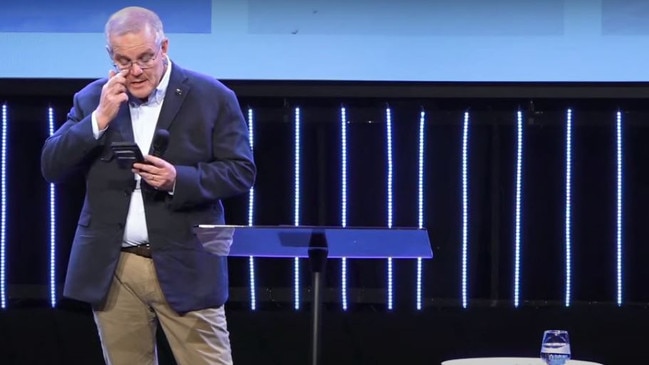
The nonpartisan Pew organisation has found in the past that Christianity is the world’s most persecuted religion. The 10 worst countries for Christians are: North Korea, Somalia, Libya, Eritrea, Yemen, Nigeria, Pakistan, Sudan, Iran and Afghanistan.
It’s striking how little this persecution registers in the consciousness of any Western nation.
Our woke society is aquiver with sensitivity to every slighted minority, to any group grievance from history or politics, yet this one group must never be named, never receive our support. I remember years ago talking with an Australian government minister who was helping persecuted Christians in the Middle East. Don’t mention we’re helping Christians, the minister told me, say we’re helping minorities. Even then, the government didn’t want to be seen explicitly helping Christians.
In Britain and much of western Europe Christianity has never been weaker. Outside of war, the societies have never been weaker either, nor more internally polarised.
In Britain, it’s increasingly difficult for Christians with orthodox religious views to participate in political leadership. In 2017, Tim Farron resigned the leadership of the Liberal Democratic Party. He said “remaining faithful to Christ” had become incompatible with being leader. Faron’s big sin was that he would not endorse the moral sanctity of gay sex. He supported its political and civic sanctity, he supported all gay rights in law, but he wouldn’t state that for him, even privately, he rejected orthodox Christian teaching. This was a classic case of a Christian being subject to “compelled speech”. Unless he recited the secular creed, in the secular Inquisition, he had to get out of public life.
A more recent case came when Nicola Sturgeon resigned last year as leader of the Scottish National Party. The frontrunner to succeed her was Kate Forbes, the brilliant young finance minister. Forbes rapidly became the favourite, with a strong lead in the polls and the backing of ministerial colleagues.
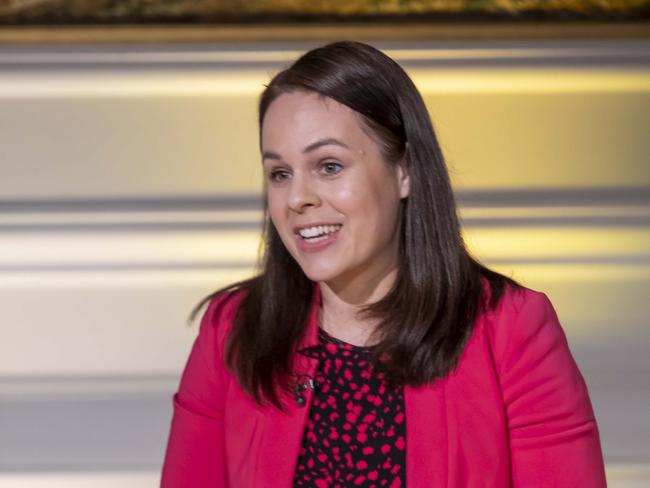
But then the terrible truth came out: Forbes was a member of the Free Church of Scotland. Like Farron, she was interrogated endlessly about her views on abortion and same-sex marriage.
She supported existing, permissive laws on abortion but ventured that she wouldn’t have an abortion herself. Similarly, she honoured the civic status of same-sex marriage, had no wish to change the law, but admitted that if she’d been in parliament when same-sex marriage was put to a vote she would have voted against.
Forbes was subject to a vicious campaign and ultimately lost the leadership contest. I met her a couple of months ago in London and she recounted the bizarre sequence of events: “Most of the social and mainstream media was focused on my unfitness for office because of my Christian views. They latched on to a number of my comments that didn’t criticise LGBT rights but which they regarded as me not sufficiently celebrating these issues.
“Once at a prayer breakfast I’d prayed that we would all protect the disadvantaged, from the unborn to the terminally ill.”
Forbes was not proposing any legal change but simply didn’t recite the required creed of contemporary secular dogma: “I had a choice: to prevaricate and hide my views or to be upfront. I answered direct questions directly.”
Forbes was shocked at the anger directed at her: “I said I uphold the law on marriage as it stands – two consenting adults can marry. I’m a servant of democracy. But I was not asked for tolerance but for affirmation. With our cancel culture, we outlaw people even articulating their real views so you can’t have any debate. Then nasty views do thrive in dark corners.”

An Australian equivalent was the 2022 controversy over Andrew Thorburn becoming chief executive of Essendon Football Club. He was forced to resign when it was revealed he was on the board of an Anglican church in which, a decade earlier, a pastor had preached a sermon critical of homosexual practice and of abortion. Yet these moral teachings, though rightly much debated and refined, and never justifying any treatment of any human being without fundamental respect for their human dignity, are common to almost all Christian denominations.
The controversy developed into the surreal sequence of Essendon Football Club saying of course it didn’t inquire into Thorburn’s religion when choosing him because to do so was illegal. But as soon as it found he was a Christian in a routinely orthodox church it effectively forced him out.
The Republic of Ireland, once the most religious European nation, is about to hold a referendum to get rid of the reference in its constitution to the family based on marriage and substitute “durable relationships”, with no definition of what these might be, how they can be contracted, what obligations they might involve or even how they could be dissolved.
All over Europe every consensus on every issue is breaking down into conflict and polarisation. It was formerly the case that the West had the balance in religious matters pretty right. There was complete religious freedom and wide social tolerance, but underlying everything was a certain consensus on the purpose of life being the pursuit of goodness. Now an illiberal liberalism is taking hold, what Rowan Williams, the former archbishop of Canterbury, has called “programmatic liberalism”, rather than procedural liberalism, a liberalism in which the state coerces belief in contemporary liberal ideology, rather than dealing liberally, or neutrally, with the variety of beliefs and customs.
But state patronage can also be disastrous for Christianity. Nowhere is Christianity more honoured at the surface and more traduced in substance than in Russia. Prolific Australian Christian author and academic Michael Bird wrote recently that the Russian Orthodox Church, in Russia itself, has become “a fawning chaplain to the Russian state and degraded itself into the spiritual sycophant of (Vladimir) Putin’s regime. Putin’s facade of Christianity is a twisted parody of true Christian religion.”
Murdered Russian dissident and opposition leader Alexei Navalny was a deeply religious Christian and this sustained him in heroic resistance to tyranny. He had declared: “The fact is that I am a Christian … I was once quite a militant atheist. But now I am a believer and that helps me a lot.” Navalny was particularly inspired by Jesus’ Sermon on the Mount: “Blessed are those who hunger and thirst for righteousness, for they will be satisfied.”
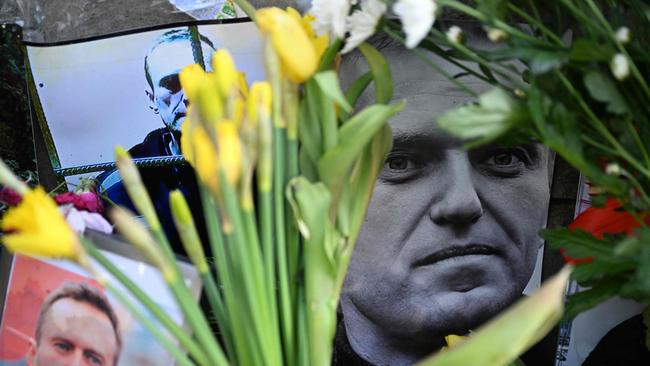
That Putin, who learnt his politics in the KGB and whose regime reprises Soviet repression, killing dissident Christians among others, has become a hero to some on the Western right is one gross deformity of our age.
Nowhere is the Christian element of society more polarised, involved in more hand-to-hand combat, than in the US, where Putin has a following even among some people explicitly claiming to be Christian.
Bird, with renowned British Bible scholar Tom Wright, has just released Jesus and the Powers, a study of Christian political tradition. They argue that in America both the anti-Christian left and the notionally pro-Christian right contribute to a destructive social polarisation. On the left, Bird and Wright see: “A soft authoritarianism under the guise of being progressive … (the) state seeks to regulate as much of the individual’s beliefs, convictions, conscience and religion as possible.” They identify four disturbing trends. One is “an emphasis on a hierarchy of identities rather than the rule of law and equality before the law to negotiate relationships between citizens”.
Other disturbing trends are: binary moral reasoning that assigns all people into the category of oppressor or oppressed; legal enforcement of distorted notions of equality; and state power no longer conceived as an “instrumental good” but rather as using coercive power to “achieve a comprehensive renovation of society according to the state’s progressive vision”.
Christians, feeling their rights and ability to proclaim the truth increasingly restricted, and worse, seeing society speeding down dangerous roads, are fighting back politically, as they’re entitled to do.
But in the US, tragically, some Christians are embracing their own extremism. Bird and Wright criticise what they regard as Christian nationalism. This is a difficult term. It’s important to get it right. There’s nothing wrong with Christian patriotism, with understanding the beneficial role of Christianity in shaping a nation’s institutions and voicing its better angels. There’s nothing wrong with loving your country and commending it to God’s providence.
Where Christian nationalism goes wrong is trying to claim, from scripture, special virtues and privileges for your nation among others, for identifying the universal Christian message of love narrowly with the geo-strategic or economic interests of your nation, of seeing the religious purpose of Christianity as furthering your nationalism, and in seeing your political enemies as a manifestation of evil rather than fellow countrymen with whom you disagree.
Tim Keller, who died last year, for decades ran a wonderfully successful Presbyterian church in New York. He was one of the most important thinkers and authors in modern evangelical Christianity. Not long before his death he argued some American evangelicals were repeating mistakes liberal churches made in the 1970s.
The liberal so-called main line denominations, especially Episcopalians, completely identified with the political program of liberal Democrats. In Keller’s view they became effectively a political movement and declined rapidly as transcendent, religious institutions. Some evangelicals now, Keller believed, have become so identified with the Republican Right, especially the very unchristian figure of Donald Trump, that they too are viewed as a political rather than religious movement. This is one reason, Keller believed, for the rapid decline in evangelical church attendance.
Keller also argued that evangelicals, in contrast to extreme liberals, hadn’t abandoned core Christian doctrines, so they have the potential to right themselves and rebuild.
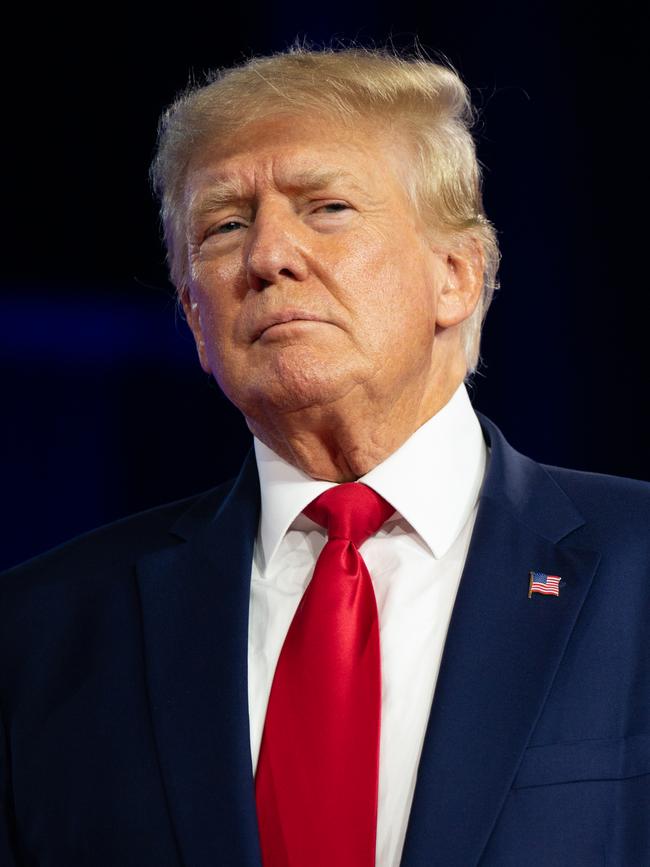
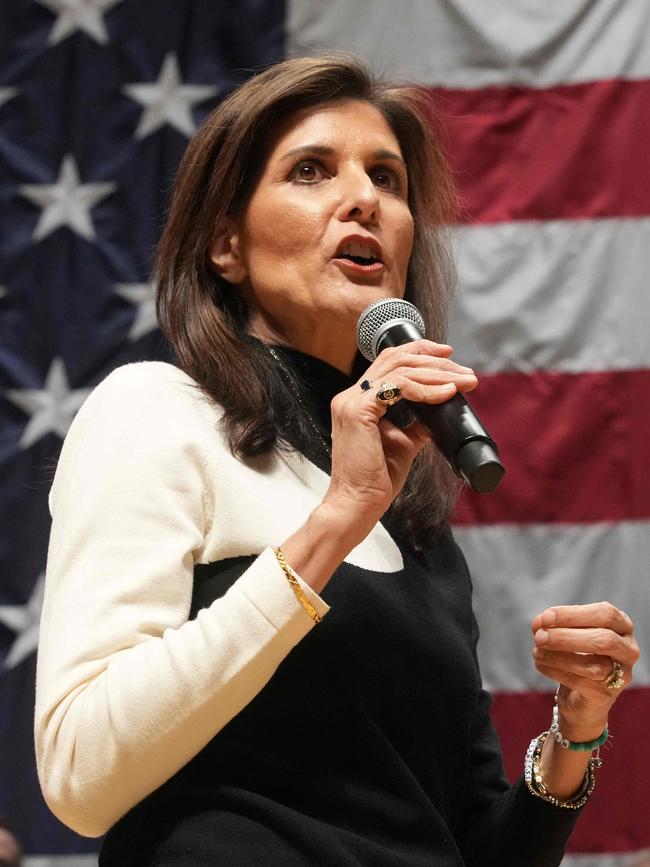
Trump wins white evangelical voters. Paradoxically, the more an evangelical goes to church, the less they vote Trump. Some non-churchgoers now identify as evangelical on political and cultural grounds. Perhaps a genuine evangelical could find a reason, just, to vote Trump rather than Hillary Clinton in 2016. But Trump over Nikki Haley?
Most forms of Christianity have been declining across the West, though not elsewhere. Bird nominates 2008 as pivotal, for an unexpected reason. It was the year the iPhone became widely available. People retreated from church into their private, unhappy digital worlds. Some Christians cast Trump as Cyrus the Builder from the Old Testament. Cyrus, the Persian emperor, allowed the Jews to return to Jerusalem and rebuild the temple. Though not of the faith, he protected the faith. Some extreme Christians view Trump more messianically. One pastor is reported to have proclaimed: “We will rule and reign through Donald Trump, under the lordship of Jesus Christ.” The logical end point of extreme Christian nationalism is something like Putin’s Russia.
Bird comments: “Putin has become the Lucifer of our age whose example has the seductions of power, masculinity, militarism, nationalism and pseudo-Christianity that have a tantalising appeal to the religious right of America who aspire to such things.”
Keller also argued that for the past thousand years Christianity in the West could rely on two things. People believed the object of life was to be good. And they possessed, even if unbelievers, familiarity with Christianity’s rudiments: Jesus, good and evil, eternal life, a personal God. Keller believed that in secular America formerly, procedural secularism, the aspiration to neutral justice by the state, was underpinned by a broad consensus on civic and spiritual meaning.
With that consensus gone, can the West endure? Now, the purpose of life is self-centred power, not to be good but to be fulfilled, not to conform your life to the truth but to find and cultivate your most pleasurable self. Christianity, said Keller, is confused.
So are Western societies living this broken consensus. It’s tragic that on all sides it’s the extremes that display the greatest energy, while the best lack all conviction, as a great poet once observed.


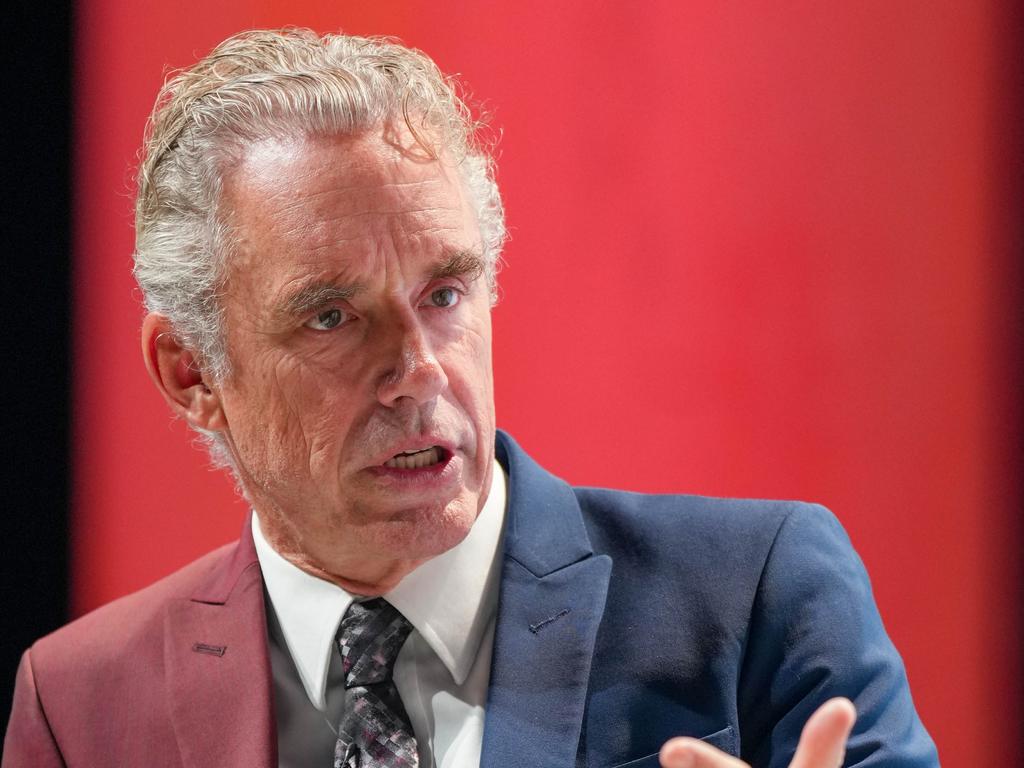

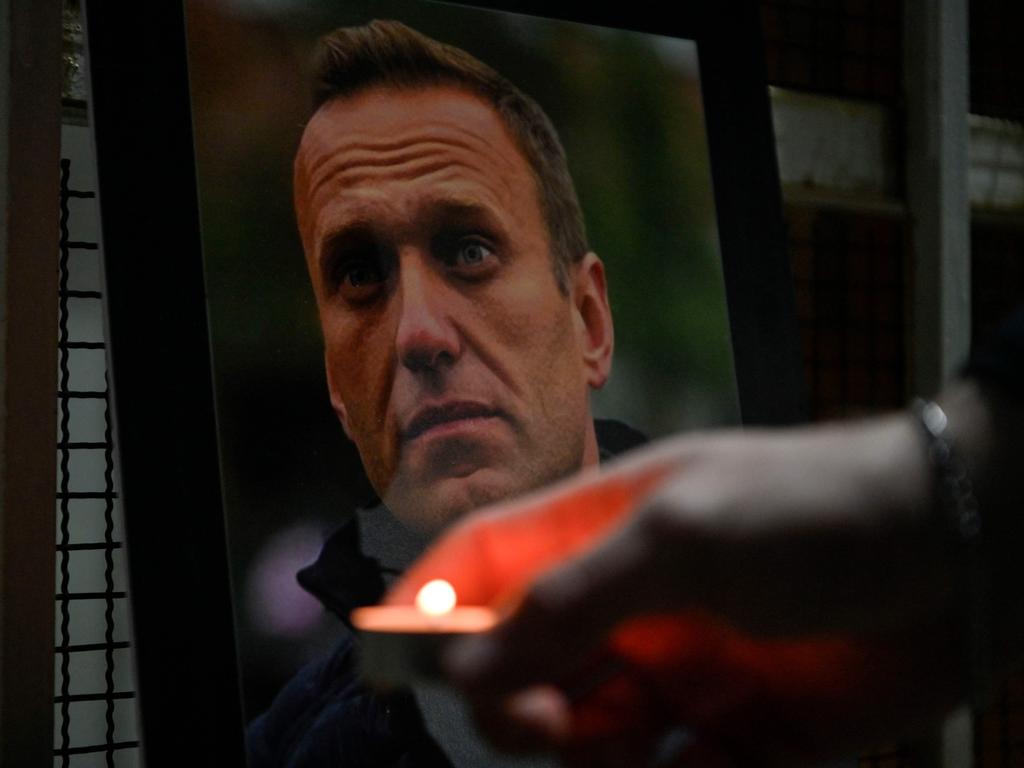


“You don’t need to share my Christian faith to appreciate the virtue of human rights … But equally we should be careful about diminishing the influence and the voice of Judaeo-Christian faith in our Western society, as doing so risks our society drifting into a valueless void. In that world, there is nothing to stand on, there is nothing to hold on to.”